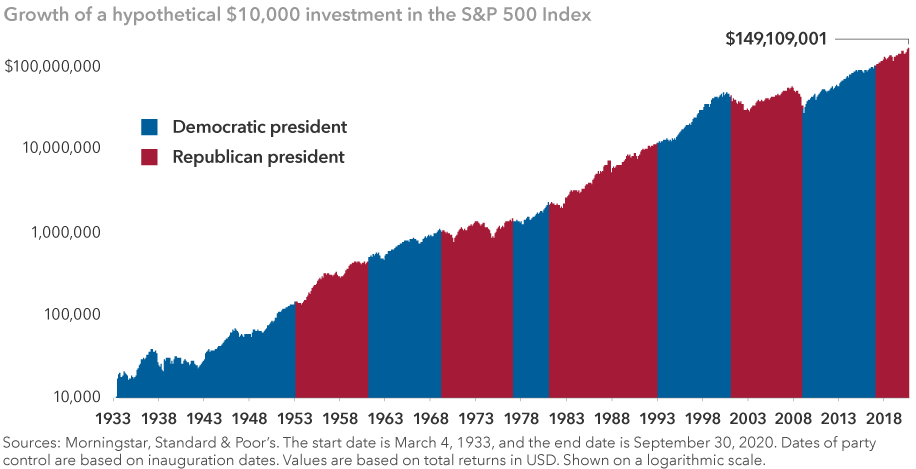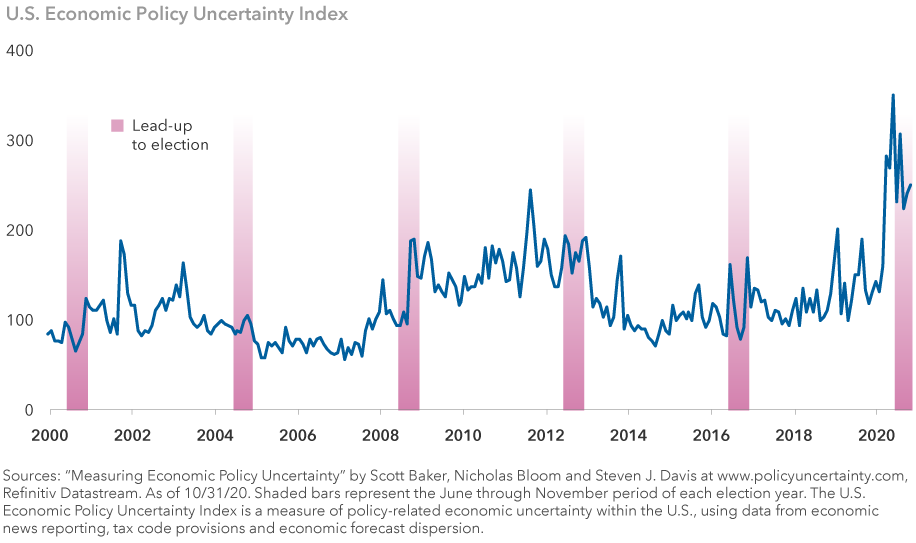The uncertainty of 2020 continues.
After turning out in record numbers, voters awoke Wednesday morning with no clear winner declared in the U.S. presidential election. In a race that has proven to be much closer than many polls had predicted, the outcome may remain unknown for days or even weeks.
“Patience will be the key to getting through this period of political uncertainty,” says John Emerson, Vice Chairman of Capital Group International and a former U.S. Ambassador to Germany. “There are literally millions of votes that have yet to be counted — including a large number of mail-in ballots — so a delay is not that surprising. We’ve been warning about this scenario for months.”
From an investment perspective, Emerson explains, it is likely that market volatility will persist at elevated levels until President Donald Trump or former Vice President Joe Biden is declared the winner. U.S. equity markets staged a strong rally on Election Day, with the S&P 500 Index rising 1.8%. On Wednesday morning, stocks continued to climb higher amid the uncertainty as results in several key states remained too close to call. Treasuries rallied, partially on the view that a split government could curtail prospects for excessive fiscal stimulus.
“There’s understandably a lot of anxiety right now,” Emerson adds, “but investors should think hard about adhering to their long-term investment goals, rather than reacting to near-term political events. That is often a mistake.”








